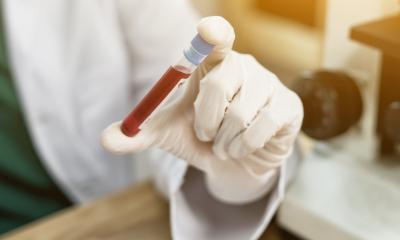
Image source: Adobe Stock/jarun011
News • Perilous PSA policy
Prostate cancer ‘test by request’ drives overdiagnosis, argue experts
Most high income countries, including the UK, do not have a national prostate cancer screening programme, but instead allow men without symptoms to get a prostate-specific antigen (PSA) test if they wish, after talking to their doctor.
But experts writing in The BMJ argue that these shared decision policies have led to high rates of PSA testing and clear medical harm, with minimal benefit and inequity.
Andrew Vickers and an international group of colleagues argue that high income countries should either implement a comprehensive risk based approach to PSA testing - designed to reduce overdiagnosis and overtreatment - or discourage PSA testing through a clear recommendation against screening, along with policies that make it hard to obtain a test without specific symptoms.
Prostate cancer is the most common cancer in men, and the third leading cause of cancer death in men in Europe. But it’s still not clear whether the benefits of PSA screening, as currently practiced, outweigh the harms of overdiagnosis and overtreatment - when low risk tumours that would never cause symptoms or shorten life are detected and treated unnecessarily. In the UK, for example, it is estimated that about 10,000 men are overdiagnosed with prostate cancer every year, exposing them to potential side effects of treatment without receiving any benefit.
The current approach of determining testing by shared decision making has resulted in the worst possible practical outcome of high levels of PSA testing and medical harm
Andrew Vickers et al.
Given this uncertainty, almost all high income countries have opted for PSA testing based on shared decision making. But the authors argue that relying on shared decision making to guide PSA testing has led to high rates of PSA testing particularly in older men, who are most likely to be harmed by screening and least likely to benefit. The shared decision making approach also reflects and reproduces health inequities. For example, in Canada and the US, PSA testing is less common in people from ethnic minorities, while in the UK and Switzerland, rates of PSA testing are lower in economically deprived areas.
In contrast, they say implementing a comprehensive, risk based prostate cancer early detection programme that carefully manages not just testing, but also biopsy and subsequent treatment, could substantially reduce the harms of overdiagnosis and overtreatment that have accompanied PSA-based screening.
Alternatively, they suggest restricting PSA testing to men with symptoms, with possible exceptions for a small number of men at high risk, but they acknowledge that such policies are largely untested and would require further research. “Although we believe that early detection of prostate cancer should involve shared decision making, the current approach of determining testing by shared decision making has resulted in the worst possible practical outcome of high levels of PSA testing and medical harm, with minimal benefit and inequity,” they write. “To make better use of PSA testing, policy makers should choose between a comprehensive, risk adapted approach that is specifically designed to reduce overdiagnosis and overtreatment, or restricting PSA testing to people referred to urologists with symptoms,” they explain. “That choice will need to take into account wider patient and public perspective, as well as health economic concerns,” they conclude.
A linked feature elaborates on the question of whether the UK is actually ready to roll out prostate cancer screening. It describes how proponents and positive news coverage suggest a national programme is “in pipeline” – but finds uncertainty, controversy, and a need for more evidence.
Source: The BMJ
22.05.2023





